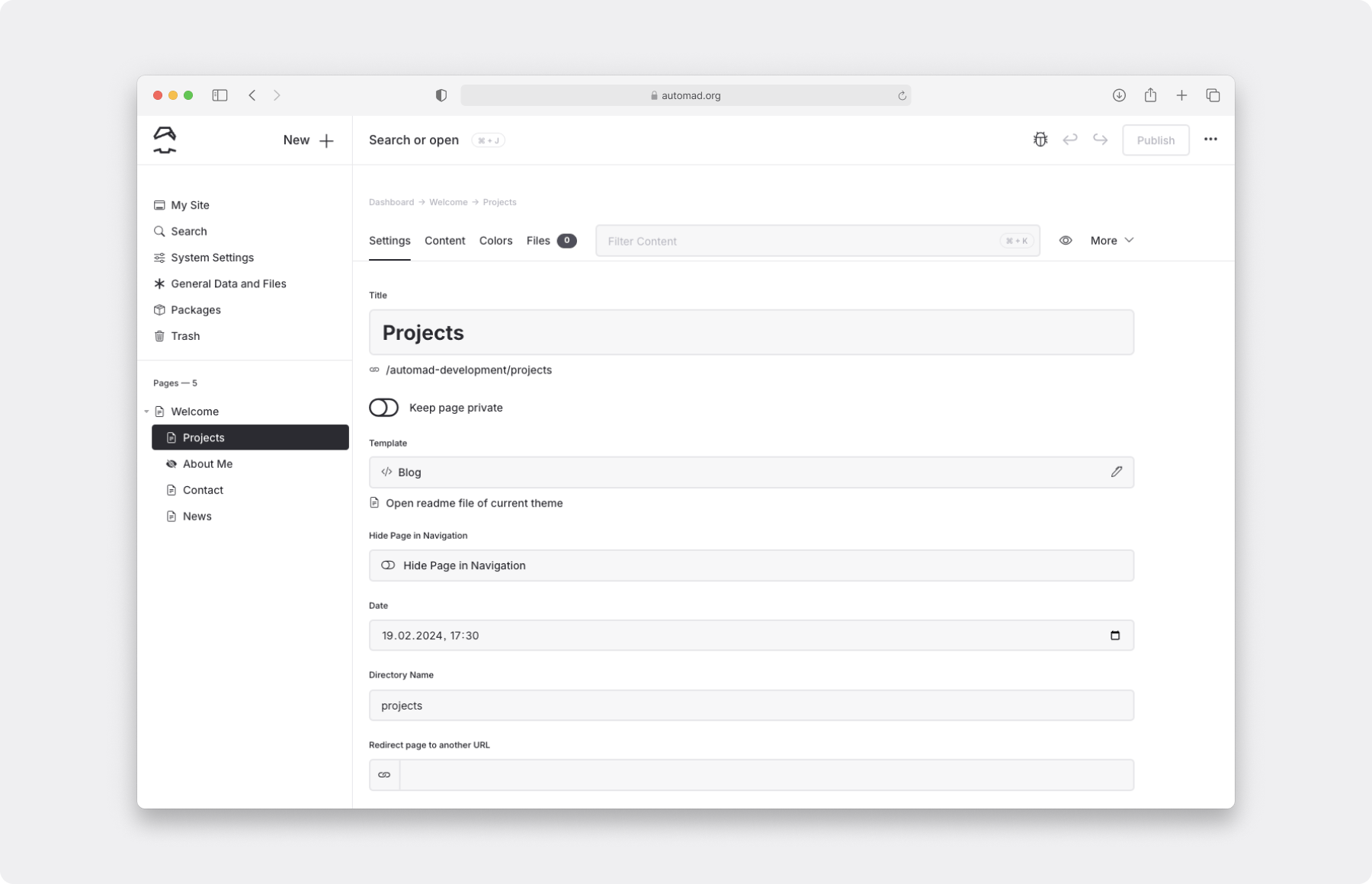A flat-file content management system and template engine.
In case you quickly want to try out Automad without setting up a server first, just check out the live demo for free. There is no sign-up required and you can start exploring new features right in away in your personal demo instance.
Important
Please note that in order to keep hosting costs under control, all demos are running on minimal hardware and expire after one hour.
Note that this repository only contains source code. Please follow the instructions below in order to install a fully bundled version of Automad using Docker or Composer. It is also possible to manually download and install Automad.
The fastest way to get Automad up and running is to use Composer.
composer create-project automad/automad . v2.x-devFollow this guide to finish the installation and get started quickly.
It is also possible to run Automad in a Docker container including Nginx and PHP 8.3.
docker run -dp 80:80 -v ./app:/app --name mysite automad/automad:v2This will essentially make your site available at port 80 and mount a directory called app in the current working directory for data persistence.
A new user account for the Automad dashboard will be created automatically. The account details will be logged by the running container.
You can show these logs using the following command:
docker logs mysiteYour can now navigate to localhost to view your new site.
In case you are not able to use Docker or Composer, you can also deploy Automad manually.
- Download a distribution bundle and move the unpacked content to the document root of your webserver.
- Make sure the PHP process has the permissions to write to the document root and its subdirectories including all installed files.
- Visit the
/dashboardroute of your site and create the first user.
In order to migrate an old Automad installation to the new version 2, please follow the migration giude in the documentation.
Take a look at the documentation to get started with Automad.
Visit the Automad package browser to get free themes and extensions for your Automad site.
Join the community, ask questions or start a discussion on the Automad discussion platform.
In case you are interested in contributing, the following types of contribution are welcome:
- Improving language packs by fixing translation errors or adding new languages
- Publishing packages like themes or extensions to the Automad package browser
- Giving feedback and helping to grow a community
- Reporting bugs or requesting features at GitHub
- Reporting security vulnerabilities
However, I do not exclude at this point using parts of Automad's source in future projects under different licenses. In order to avoid having to ask anybody for permission when doing so, I will not accept any contributions to this repository. Please understand that pull requests will therefore be ignored.
To make the development of themes more efficient, plugins providing syntax highlighting and snippets for Automad's template language are available for the following editors:
© 2013-2024 Marc Anton Dahmen
Released under the MIT license






